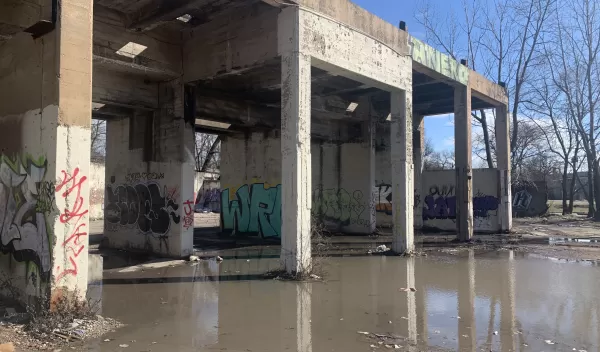
NSF invests $7.5M in research to understand the human dimensions of improving American infrastructure
Electric vehicle charging stations, public green spaces and well-being, household carbon emissions and stormwater resilience are among the subjects being examined by 10 new research projects receiving backing from the U.S. National Science Foundation.
NSF is investing a total of $7.5 million in projects exploring multiple aspects of local and national infrastructure. The cross-disciplinary projects are led by social and behavioral scientists collaborating with researchers from a wide range of fields.
NSF's Strengthening American Infrastructure (SAI) program supports research that incorporates scientific insights about human behavior and social dynamics to better design, develop, rehabilitate and maintain strong and effective American infrastructure.
Strong, reliable and effective infrastructure spurs private-sector innovation, grows the economy, creates jobs and strengthens communities. "The SAI program stimulates human-centered research that not only improves people's lives but also provides a strong foundation for socioeconomic vitality and broad quality of life improvement," says Steven Breckler, SAI program manager. "SAI focuses on how knowledge of human reasoning and decision-making, governance, and social and cultural processes enables the building and maintenance of effective infrastructure that improves lives and society and builds on advances in technology and engineering."
These three-year projects are led by 10 institutions in eight states, including one state within the Established Program to Stimulate Competitive Research which supports areas in the U.S. that have historically received less federal support for research and development:
- University of Alabama researchers will study how people make choices about public electric vehicle charging stations while considering the equitable distribution of those stations across the country to help provide a framework for planning charging station development.
- DePaul University researchers will conduct a multidisciplinary project to understand the impact of public spaces on cognition, emotion and well-being by identifying features of public spaces associated with psychological restoration and well-being.
- University of Cincinnati researchers will explore ways to reduce carbon emissions in residential buildings currently under renovation by retrofitting the buildings with an energy modeling platform to better predict household carbon emissions.
- William Marsh Rice University researchers will study how coastal communities can make the best use of green stormwater infrastructure, such as rain gardens, bioswales and green detention and retention basins, to manage stormwater and infrastructure development processes in Houston, Texas, and beyond.
- University at Buffalo researchers will study the interactions between wildfires, socially vulnerable populations and emergency management practices to gain insights into the design and improvement of emergency management infrastructure systems.
- University of Chicago researchers will examine new sources of broadband performance measurement data at scales ranging from blocks to entire townships and cities to help inform ongoing broadband investment efforts.
- Pennsylvania State University researchers will investigate the challenges raised by the increasing interdependence between electric power used for heating homes and natural gas shortages during extreme cold weather events to improve the allocation of natural gas between local distribution companies and power plants.
- University of Colorado at Denver researchers will explore how people can benefit from vehicle-grid integration by improving the flow of energy and information between electric vehicles and the electric grid while making the grid more resilient.
- Illinois Institute of Technology researchers will study stormwater resilience and infrastructure disparities in urban areas of Chicago by identifying stormwater flooding events and conducting water-quality testing to improve urban stormwater management.
- Rutgers University researchers will examine how people with impairments or who are temporarily encumbered navigate around physical objects and other people in public transportation hubs.
In addition, the SAI program co-funded two collaborative research awards made by other programs — one with Harvard University researchers who will examine shipping ports infrastructure and the impact on supply chains (co-funded through an Economics program award) and one with Florida State University researchers who will investigate whether energy efficiency and conservation programs can effectively change energy consumption behavior throughout disadvantaged communities (co-funded through a Decision, Risk and Management Sciences program award).
For additional information, please visit NSF's Strengthening American Infrastructure program webpage.
